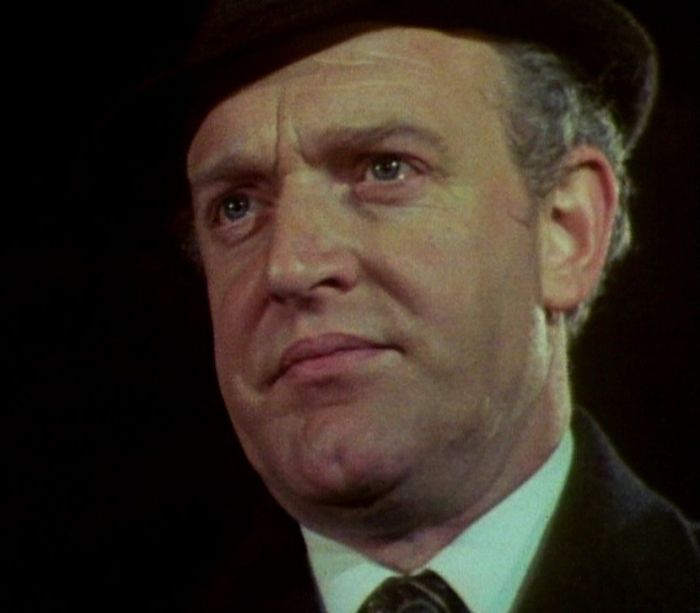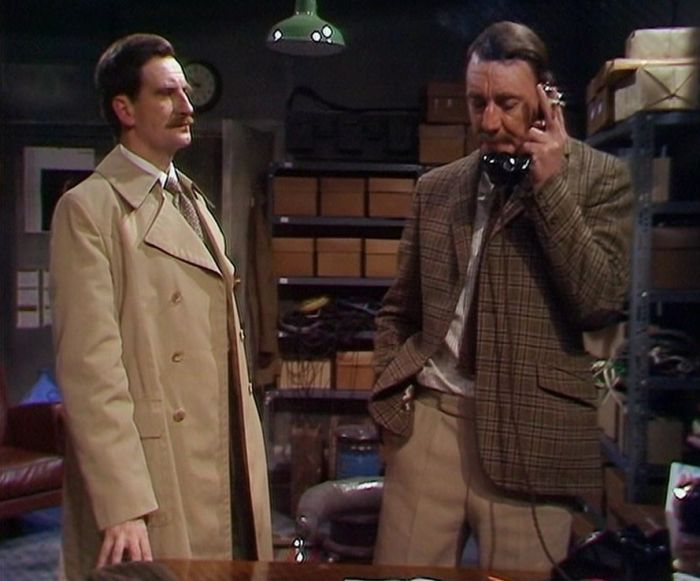
Series two of Softly Softly: Task Force was broadcast between September 1970 and March 1971. Whereas series one (discussed here) had sixteen episodes, series two ran for twenty six episodes (an obvious sign that series one had been a success).
Below is a brief episode guide –
Baptism – 16th September 1970
Written by Elwyn Jones. Featuring Ian Hogg
Sunday, Sweet Sunday – 23rd September 1970
Written by Alan Plater. Featuring Christopher Beeney, Windsor Davies and Michael Hawkins
Safe in the Streets? – 30th September 1970
Written by Allan Prior. Featuring Leon Vitali, Vicki Michelle and George Tovey
Good Listener – 7th October 1970
Written by Elwyn Jones. Featuring Jonathan Newth
Time Expired – 14th October 1970
Written by Robert Barr
Lessons – 21st October 1970
Written by Arnold Yarrow. Featuring John Ringham, Glynn Edwards and Sally Thomsett
Without Favour – 28th October 1970
Written by Alan Plater. Featuring Collette O’Neil
Never Hit a Lady – 4th November 1970
Written by Allan Prior. Featuring Neil McCallum and Richard Beale
Its Ugly Head – 11th November 1970
Written by Elwyn Jones. Featuring Michael Goodliffe
Who Wants Pride…? – 18th November 1970
Written by Robert Barr. Featuring Jess Conrad and Ray Lonnen
Collation – 25th November 1970
Written by Elwyn Jones
Do Me a Favour – 2nd December 1970
Written by Robert Barr. Featuring Chloe Ashcroft, Victor Maddern and Jon Rollason
Sweet Are the Uses of Adversity – 9th December 1970
Written by Elwyn Jones. Featuring Del Henney
Bearings – 16th December 1970
Written by James Doran
A World Full of Rooms – 23rd December 1970
Written by Allan Prior. Featuring Milton Johns
The Lie Direct – 30th December 1970
Written by Elwyn Jones. Featuring Tony Calvin and Geoffrey Palmer
Ground Level – 6th January 1971
Written by Alan Plater. Featuring Glyn Owen
Company Business – 13th January 1971
Written by John Elliot. Featuring Wendy Gifford
Kick Off – 20th January 1971
Written by Elwyn Jones. Featuring Roddy McMillan and George Pravda
Final Score – 27th January 1971
Written by Elwyn Jones. Featuring Roddy McMillan and George Pravda
Something Big – 3rd February 1971
Written by Robert Barr. Featuring Desmond Llewellyn, John Woodvine and Jeremy Wilkin
Games – 10th February 1971
Written by Arnold Yarrow. Featuring Jean Boht
In the Public Gaze – 17 February 1971
Written by Elwyn Jones. Featuring Gawn Grainger and Reginald Marsh
Held for Questioning – 24th February 1971
Written by Robert Barr. Featuring Denis Quilly and Norman Jones
Black Equals White – 3rd March 1971
Written by Allan Prior. Featuring Angus MacKay
Cash and Carry – 10th March 1971
Written by Elwyn Jones. Featuring Gertan Klauber and Peter Sallis
The regular cast is pretty much unchanged since series one. Stratford Johns continues to dominate as Chief Supt. Barlow, whilst Frank Windsor returns as the straight-talking Det. Sup. Watt. Norman Bowler (Det. Insp. Hawkins) doesn’t have such a sharply-defined character as either Barlow or Watt, but he’s still a very solid presence. Walter Gotell, probably best known playing Gogol in the James Bond films, makes the occasional appearance as Chief Constable Arthur Cullen.
David Lloyd Meredith provides a dash of humour as the rather Welsh Sgt. Evans whilst Terence Rigby (always a rather idiosyncratic actor) is, as PC Snow, another actor who’s always worth watching. PC Snow was distraught at the end of series one after his police-dog Inky was shot and killed, so series two sees him develop his working relationship with Inky’s replacement. Susan Tebbs, as Det. Con. Donald, remains the show’s sole female regular. Terrence Hardiman is a new recruit, turning up towards the end of the season as Inspector Armstrong.
As listed in the episode guide above, a host of familiar faces pop up during the course of the twenty six episodes and there’s also some very sharply written scripts, especially those provided by Alan Plater (a Z Cars veteran). Elwyn Jones (who had created the Softly Softly: Task Force format) was another writer who had racked up numerous credits on Z Cars and Softly Softly and would be just as prolific on Softly Softly: Task Force and the later spin-off, Barlow. Like Plater, he really understood how the series worked and his episodes, including the series opener and closer, are some of the strongest.
It’s interesting that both SS:TF and Dixon of Dock Green started to produce several all-film episodes at the same. It’s just a pity that these ones – Lessons and Do Me A Favour – look pretty poor (very faded colours on both throughout). Given the age of the material that’s not a surprise, but generally what we have across the seven discs is quite watchable. There’s no particular issues with the VT sequences (apart from the occassional bit of tape damage) but the film inserts on certain stories are rather grubby.
With so many episodes, it’s inevitable that the quality dips from time to time, but generally the level remains pretty consistent throughout the run. During the next month or so I’ll be posting reviews of every episode, which will enable me to examine them in a little more detail.
Softly: Softly Series Two is released by Simply Media on the 26th of September 2016. RRP £44.99.


























